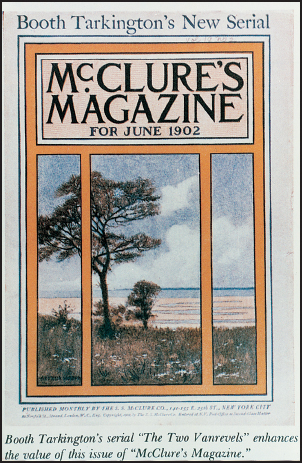Muckrakers Expose Social Ills
Printed Page 101

The rise in magazine circulation coincided with major changes in American society in the early 1900s. Hundreds of thousands of Americans were moving from the country to the city in search of industrial jobs, and millions of people from foreign lands were immigrating to the United States hoping for new opportunities. Many newspaper reporters interested in writing about these and other social changes turned to magazines, where they could write longer, more analytical pieces on topics such as corruption in big business and government, urban problems faced by immigrants, labor conflicts, and race relations. Some of these writers built their careers on crusading for social reform on behalf of the public good—often openly criticizing long-standing American institutions.
In 1906, President Theodore Roosevelt dubbed these investigative reporters muckrakers, because they were willing to crawl through society’s muck to uncover a story. Although Roosevelt wasn’t always a fan of it, muckraking journalism led to some much-needed reforms. For example, influenced in part by exposés at Ladies’ Home Journal and Collier’s magazines, Congress in 1906 passed the Pure Food and Drug Act and the Meat Inspection Act. Reports in Cosmopolitan, McClure’s, and other magazines led to laws calling for increased government oversight of business, a progressive income tax, and the direct election of U.S. senators.